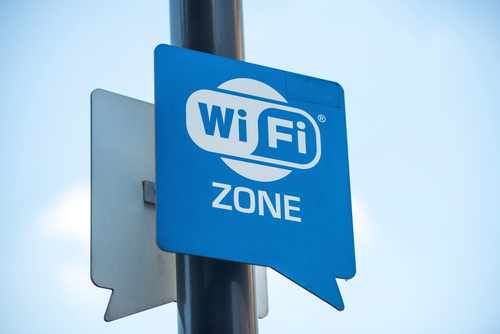Is Wi-Fi Bad For You?
Also Known As: local area wireless computer networking
Short answer
WiFi is too weak to cause damage to our DNA. Furthermore, it’s just one of a multitude of electromagnetic signals we’re bombarded with every day.
'N' stands for neutral. Things placed into this category are (a) neither good nor bad for you, or (b) lack the necessary evidence to reach any conclusions.
View Full Grading System
Category 'A'
Very healthy and numerous health benefits. Side effects are rare. Things rated an 'A+' are typically necessary for survival (for example, water).
Very healthy and numerous health benefits. A few harmful qualities may be associated, but only under certain circumstances such as an allergic reaction.
Very healthy and numerous health benefits. Harmful qualities may be associated, but aren't usually serious.
It is important to note that even the best things in life can become bad in immoderate amounts. So, although something may be rated an 'A+', overconsumption/overdoing can bring unwanted effects.
Category 'B'
Very beneficial to your health. Things rated a 'B+' may have a few harmful qualities to pay attention to.
Overall beneficial to your health. Things rated a 'B' may have some harmful qualities to pay attention to.
More beneficial to your health than not. However, harmful qualities are most likely associated and shouldn't be overlooked.
The main difference between category 'A' and category 'B' is the harmful qualities typically present in 'B' items. Serious side effects are usually uncommon, but are still possible and should be taken note of.
Category 'C'
Both beneficial and harmful qualities associated. Things rated a 'C+' are typically a bit more on the beneficial side. Still, moderation is important.
A fairly even ratio of beneficial and harmful qualities. Moderation is important. Very general topics that can lean towards both sides of the spectrum will be placed here as well. Rice, for example, can be good or bad depending on the type.
More harmful than beneficial. Side effects are common, especially when consumed/done excessively. Moderation is very important.
Category 'C' usually denotes to both good and bad qualities. When it comes to this category, it is important to keep this word in mind: moderation.
Category 'D'
Harmful to your health. Although benefits may be associated, the bad most likely outweighs the good. Moderation is very important.
Harmful to your health. A few benefits may be associated, but the bad outweighs the good. Moderation is extremely important.
Harmful to your health. Very few, if any, benefits are present. Things in this category should be avoided as much as possible.
Category 'D' is typically for things that are more harmful than beneficial. While consuming/doing something unhealthy once in a blue moon shouldn't hurt, we definitely recommend eliminating 'D' items as a regular part of your routine/diet.
Category 'F'
Category 'F' is for things that fail to bring anything beneficial to the table, and are very harmful to your health. We recommend completely avoiding anything in this category. Long-term side effects of 'F' items are usually very serious.
Category 'N'
'N' stands for neutral. Things placed into this category are generally (a) neither good nor bad for you, or (b) lack the necessary evidence to reach any conclusions.
Long answer
When considering the safety of WiFi, it's important to make the distinction between ionizing and non-ionizing radiation. Ionizing radiation has extremely short wavelengths - small enough to knock around electrons or shred your DNA. It includes ultraviolet light, gamma rays, and x-rays. Non-ionizing radiation is on the opposite end of the spectrum and doesn't generally shred your DNA. It includes visible light, radio waves, infrared, and microwaves, which includes WiFi. All of these wavelengths are generally too weak to ionize atoms and thus can't do much to increase your risk of genetic damage or cancer over time.
Another point to consider is that WiFi - which is non-ionizing and thus likely non-harmful in the first place - produces a fairly weak signal. Microwave radiation around the router has about one watt of strength, which is a fraction of that produced by an actual microwave. Because of the inverse square law, the strength of that signal drops off dramatically as it moves away from a router; every time you double the distance, the power drops to a quarter of what it once was.
The World Health Organization has an in-depth white paper that looks at more than 25,000 studies on electromagnetic radiation and health. They found no evidence for cancer clusters brought on by electromagnetic fields; the only health effect they found at all, in fact, was a slight increase in body temperature when exposed to electromagnetic fields several times stronger than WiFi.
Their brief also highlights another important point; that people absorb three or four times as much electromagnetic signals from radio and television than they do from WiFi. This has been true for more than half a century, according to the WHO, and no studies in that time have shown that exposure to electromagnetic fields has an effect on your health. WiFi is a similar wavelength to cosmic background radiation - the echo of the Big Bang that pervades the known universe. You're exposed to it all day long and have been for your entire life.
Some people claim to be sensitive to electromagnetic fields; their controversial condition is called electromagnetic hypersensitivity. One tragic case involved a teenage girl in the UK who claimed that the WiFi at her school was impacting her health. She ended up committing suicide. Numerous studies, including a review of 29 different studies, have demonstrated that there's no convincing evidence that those with EMS are affected by the presence of electromagnetic fields. And the girl from the UK? A detailed analysis from the blog Science Based Medicine makes the case that her symptoms match with those of depression - an alternative diagnosis that was sadly overlooked.

Please turn your Ad Blocker off to see this content. Thank you!


 Approved by
Approved by 














